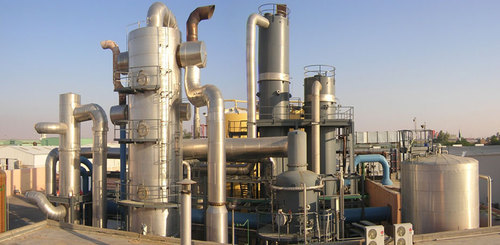The engineering, procurement, and construction contract for the Polysilicon facility project has been awarded by a subsidiary of Adani Enterprises, Mundra Solar Technology. The flagship entity of Adani Group will be the first company to spearhead the facility for the production of monosilane and polysilicon.
The state-owned engineering and construction company, Engineers India (EIL) won the project’s EPC contract. The largest multi-disciplinary professional body is under the ownership of the Ministry of Petroleum and Natural Gas.
Proposed features of the Polysilicon facility
The facility project will feature a monosilane production capacity of 500 MTPA. The feed gas, also known as SiH4, is often used to produce polysilicon. Furthermore, the facility will feature a production capacity of 30,000 million tons per annum (MTPA) of polysilicon.
Read Also: New Versova Bridge project in India gears up for completion in 2023
The large-scale, integrated manufacturing facility’s location is within Gujarat’s Gulf of Kutch. It will span a total area of 57,09 hectares of land. The state-of-the-art facility’s total cost is $892 million (INR 73.81 billion) approximately. Impressively, it will also produce crystalline silicon ingots as well as wafers. Additionally, the plant will also specialize in the production of solar photovoltaic cells and modules in the region.
Significance of the Polysilicon facility in India
Currently, the production of polysilicon does not exist in India. However, it is the most critical component of a solar cell. On a global scale, its production is mainly concentrated in the United States and China. Thus, the project’s progress marks a milestone achievement for the solar industry sector in India.
While commenting on the project, EIL noted that India has been depending on the import of polysilicon, for a long time. Upon completion and operation, the Polysilicon facility will be a step closer to realizing the vision of Atmanirbhar Bharat. Additionally, the project will also immensely contribute towards India’s Net Zero by 2070 target.
The initiative strives to retrieve 50% of its energy from renewable, or rather green resources by 2030. Moreover, by the same year, the initiative strives to reduce the total projected emissions of carbon, by one billion tonnes.

Leave a Reply